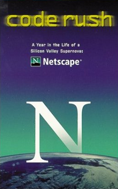I always think its a good idea to be in Barcelona. But unfortunately I will not be there this weekend. But for those of you who are in the area this coming weekend, you should seriously consider attending the Free Culture Forum:
Across the planet, people are recognizing the need for an international space to build and coordinate a global framework and common agenda for issues surrounding free culture and access to knowledge. The Free Culture Forum of Barcelona aims to create such a space. Bringing together under the same roof the key organizations and active voices in the free culture and knowledge space, the Forum will be a meeting point to sit and put together the answers to the pressing questions behind the present paradigm shift.
Representatives from Creative Commons Spain, Students for Free Culture and Wikimedia will be in attendance (among many others), so it’ll be a great opportunity to meet plenty of people in our community. Registration is free and open to the public, but there are more details on how to get involved here.
(via Creative Commons)





